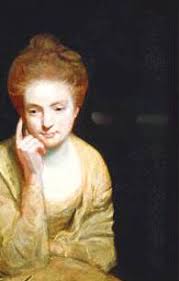Mary Astell (1666-1731)
Mary Astell was born in Newcastle in the year 1666, to an upper middle class family. Astell grew up in a strict anglican family. Mary Astell did not attend school but instead was taught to read inside the home. Her uncle, a clergyman, was very influential in the education of young Mary Astell. Mary was inspired by her uncles challenging teachings and grew hungry to continue learning. Around the age of 13 Mary’s uncle passed away, leaving her to pursue knowledge on her own. The death of her uncle was just one of many setbacks for Mary Astell, in the previous year her father had also passed away leaving the astell family in poverty. The struggling family then moved to Mary Astell’s aunt’s house in efforts to find refuge from their hard economic times. This series of unfortunate events made it unlikely Mary would be a suitable wife in her social class. Mary later made the decision to move to the Chelsea district of London where she struggled to support herself as a writer.
Mary’s first found recognition as a writer in 1694 when she published, A Serious Proposal to the Ladies, for the Advancement of Their True and Greatest Interest parts 1. This work outlined Marys plan to establish an institution to educate women. Astell strived for equal opportunity for men and women. Mary’s controversial beliefs that women were just as rational as men made her a pioneer in the early women’s movement. In 1700 Mary Published “Some Reflections Upon Marriage.” Here She elaborated on the problems she saw with the institute of marriage. By encouraging women to not rush into a marriage she was influential in instilling independence within young women. Uncommon for her time she insisted marriage be with someone you love and the misery that can come with marriage to the wrong person.
In 1709 Mary removed herself from public life but still worked to empower women. She opened a Charity school for girls in chelsea. By designing the curriculum herself she continuously worked to give young girls the tools they needed to become indepent. Until her final days marry worked to empower women and questioned gender inequalities she faced in her time. After a long fight with breast cancer mary died in 1731.
“If all Men are born Free, why are all Women born Slaves?”- Mary Astell
Fun Facts About Astell.
- In her last days she confined herself to a room with her coffin contemplating god.
- She was groundbreaking in negotiating women’s position in society
- She is buried in the churchyard of Chelsea Church in London
Works cited
“Astell, Mary.” Encyclopedia of World Biography. . Encyclopedia.com. 27 Nov. 2017 <http://www.encyclopedia.com>.
Broad, Jacequelin. “Mary Astell (1666-1731).” Internet Encyclopedia of Philosophy, Monash University , www.iep.utm.edu/astell/.
Adams , Max. “Mary Astell (1666-1731).” The Ambulist, www.theambulist.co.uk/words-and-musings/heroines-seven-women/mary-astell.

